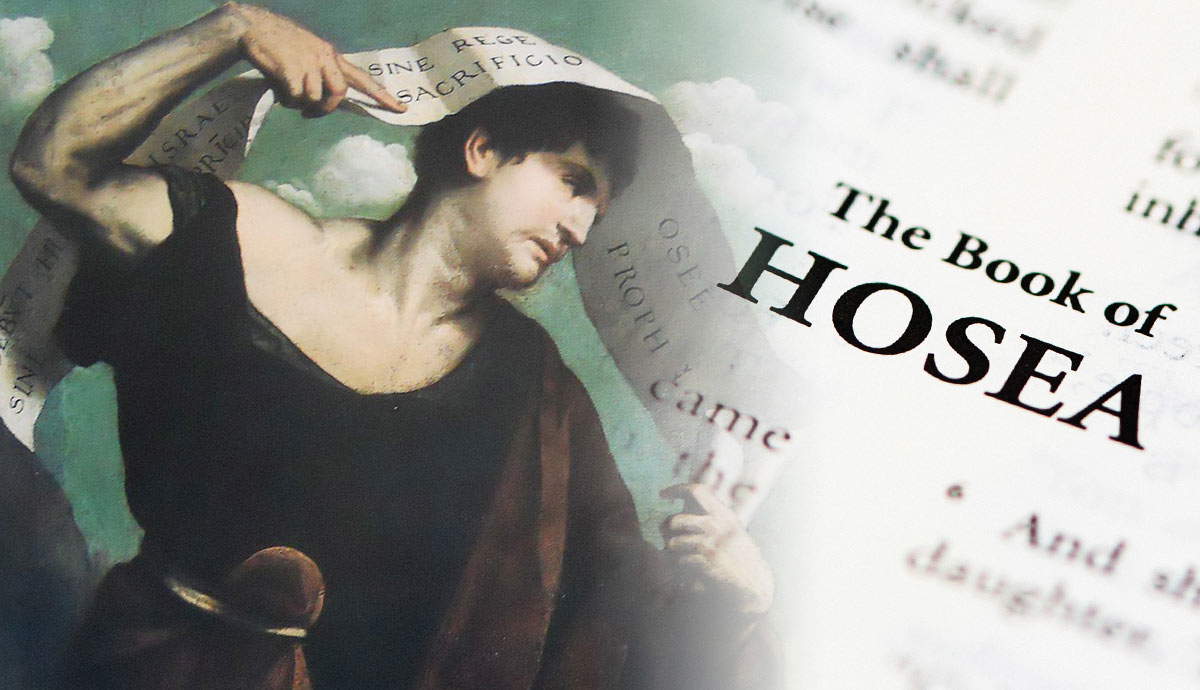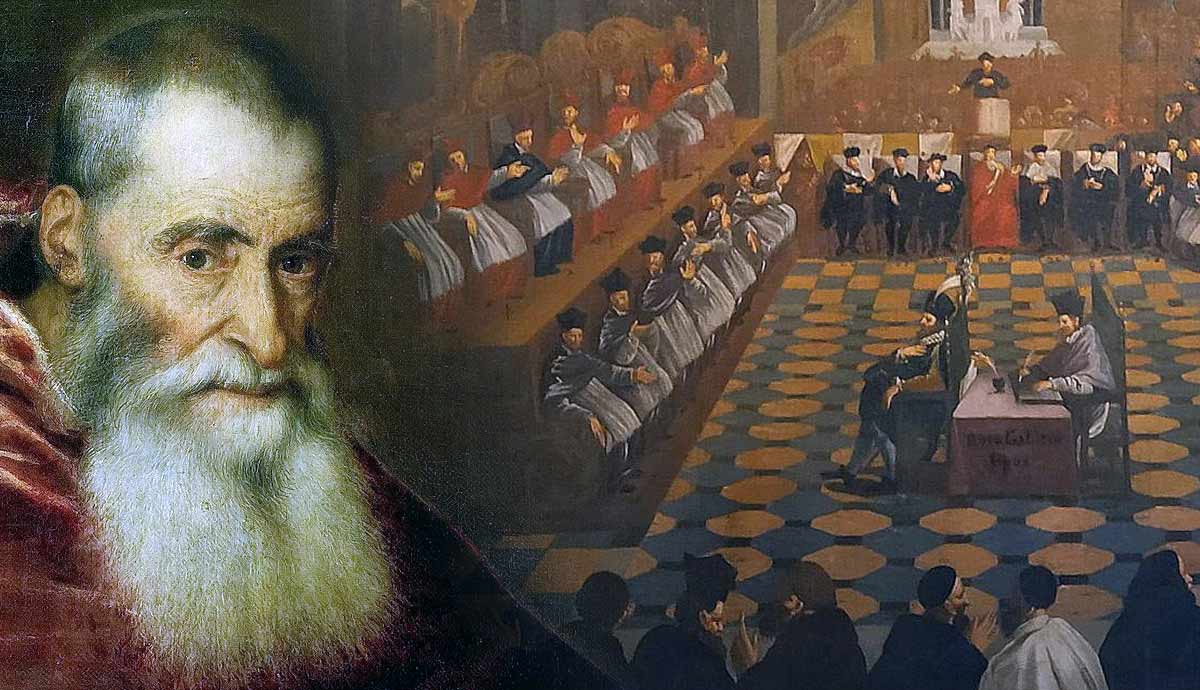
Solomon is synonymous with the honor, prosperity, and riches of Israel. These material things were never his goal but were the result of his desire to serve God as a trustworthy steward of his people. Solomon’s wish was to have the insight to distinguish between good and evil and the ability to govern well. The author of Kings purposefully presented a narrative that exemplified Solomon’s wisdom to show that the people recognized his God-given talent. Solomon, however, was not perfect, and two details from 1 Kings 3 prefigured Solomon’s downfall that would come many years later.
Judgeship as Function of Kingship

In modern democracies, nations have three branches of government: the Executive, the Legislative, and the Judicial Branch. The separation of power ensures that there are checks and balances preventing tyranny and abuse of power and ensuring fairness and accountability. When kings ruled Israel, the king was responsible for all three of these functions. There was no separation of powers. The king made laws, oversaw their implementation, judged those accused of violating them, and could execute judgment too, or at least order the execution of punishment. The opportunity for corruption and abuse is self-evident.
The two kings of Israel before Solomon, namely Saul and David, abused their power for their own benefit. Saul had the priests of Nob and their families executed even though they did not plot against him, and only Ahimelech acted in ignorance. David, in turn, had his soldiers withdraw from battle without informing Uriah, Bathsheba’s husband, to conceal his adultery (2 Samuel 11:15-17). Absalom, an older brother of Solomon, appointed himself as a judge to gain favor with the people, abusing justice for his own purposes (2 Samuel 15:1-6). It showed that had Absalom become king, he would have been a corrupt judge.
Solomon, who grew up in the royal household of David, had access to the highest standard of education and was a bright individual. He had been exposed to the workings of government and the responsibility of the king as a judge. He was aware of the importance of integrity and honesty because the king set the tone for the kingdom. He showed remarkable discernment when dealing with political and judicial matters, but when it came to his personal affairs, he lacked that virtue.
Solomon’s Desire for Wisdom

The first part of 1 Kings 3 is an interesting passage highlighting Solomon’s desire for wisdom. On one of the regular occasions that he went to Gibeon to sacrifice unto the Lord, Solomon had a dream in which God said: “Ask what I shall give you.” (1 Kings 3:5). Solomon replied: “Your servant is in the midst of your people whom you have chosen, a great people, too many to be numbered or counted for multitude. Give your servant therefore an understanding mind to govern your people, that I may discern between good and evil, for who can govern this your great people?” (1 Kings 3:8-9)
Solomon’s request indicates that he understood the weight of responsibility the office placed on him. He also grasped that he was a steward of God’s people and, as such, would be accountable to God for his decisions and actions. Solomon did not ask for things that would satisfy self-interest but that would serve the people and the kingdom.
God’s reaction to Solomon’s request is significant. Because Solomon was selfless in asking for the ability to govern his people well, God not only granted him his wish but also gave him honor and riches. In addition, God conditionally promised that, as long as Solomon obeyed his commands, he would live a long life.
Surprisingly, the passage includes Solomon’s weaknesses as well. It mentions that he married a daughter of Pharoah and worshiped in the high places of Gibeon. As we will soon see, both these actions were inconsistent with the wisdom God gave Solomon.
Wisdom in Solomon’s Court

The second part of 1 Kings 3 presents an example of Solomon’s wisdom in action. It tells the story of two prostitutes who appeared before Solomon so that he could bring judgment in their dispute. The women resided in the same house, and each gave birth to a baby boy three days apart. The plaintiff claimed that her housemate’s baby passed away because she lay on him and subsequently swapped the babies in the dead of night. The next morning, she discovered that the deceased child that was with her was not her child. The accused denied the claims of the plaintiff, and the case reached a deadlock.
There was no scientific method available at the time to resolve the issue, and Solomon had to devise a way to determine who the mother of the living child was. The king ordered that a servant bring a sword and divide the baby in two, giving each woman one half.

This decision may seem repugnant today, but in the ancient world, the killing of babies was not uncommon. Molech worship involved child sacrifice and the killing of baby boys appear in several Bible narratives. It was, therefore, a credible threat to the life of the baby that the two women had to consider at that moment. Solomon exploited what he knew about human nature and motherly instinct to reveal which woman was the legitimate mother. One who steals another woman’s baby does not truly care for the best interest of the child or mother.
In contrast, a mother would do anything to preserve the life of the child, even if it meant having someone else raise the child. The mother of the child said: “Oh, my lord, give her the living child, and by no means put him to death” while the other, who would lose nothing, agreed with the king’s order. Solomon returned the living baby to his mother. The people recognized the wisdom of God in Solomon’s handling of the case.
Foolishness of the Wise

The Bible attributes the words of Proverbs 1:7 to Solomon: “The fear of the LORD is the beginning of knowledge; fools despise wisdom and instruction.” In this context, fear would have been better translated as “reverence.” It manifests as obedience to the commands and instructions of God.
1 Kings 3:1-3 reveals the contradiction Solomon’s life and actions posed. The seeds of disobedience were present at the beginning of Solomon’s reign. Solomon’s weakness for women of foreign origin, some of whom he married to solidify political allegiances, increased with time. 1 Kings 11:1 -2 reports:
“Now King Solomon loved many foreign women, along with the daughter of Pharaoh: Moabite, Ammonite, Edomite, Sidonian, and Hittite women, from the nations concerning which the LORD had said to the people of Israel, “You shall not enter into marriage with them, neither shall they with you, for surely they will turn away your heart after their gods.” Solomon clung to these in love.”
Verse 3 says: “Solomon loved the LORD, walking in the statutes of David his father, only he sacrificed and made offerings at the high places.” The word “only” is significant. It indicates that what follows does not align with what was said thus far. Like many other Israelites, Solomon made sacrifices to God in the high places. This was not allowed according to Deuteronomy 12:13-14. Only the place God designated would serve as a legitimate place to bring sacrifices.
Many other pagan religions used to bring sacrifices in high places. God’s people had to be different. Leviticus 18:3, 20:23, and Deuteronomy 12:30-31 made that clear. Jeremiah 10:2 would later confirm the principle:
“Thus says the LORD: ‘Learn not the way of the nations, nor be dismayed at the signs of the heavens because the nations are dismayed at them.’”

Solomon’s weaknesses converged when he built places of worship for the gods of his wives and joined them in worshiping them.
Even with the blessings of material wealth and wisdom that Solomon received, his wisdom did not always prevail. In time, his love for God waned, and he made decisions driven by desire. He chose not to follow the path God presented to him, but because of his father David, his kingdom did not fall in Solomon’s lifetime. God said:
“Since this has been your practice and you have not kept my covenant and my statutes that I have commanded you, I will surely tear the kingdom from you and will give it to your servant. Yet for the sake of David your father I will not do it in your days, but I will tear it out of the hand of your son. However, I will not tear away all the kingdom, but I will give one tribe to your son, for the sake of David my servant and for the sake of Jerusalem that I have chosen.” (1 Kings 11:11-13)
Thus, 1 Kings 3 tells not only of the wisdom of Solomon but also reveals what would be his downfall and that of the unified Kingdom of Israel.










